Return to the fray
It is possible, though rather unlikely, that one or two of my fellow contributors to these pages may have noticed my absence from them since 28 May, a week after the federal election. While Anthony Albanese hardly deserved to win that contest (Labor recording its lowest primary vote ever), the Coalition under Scott Morrison certainly deserved to lose it. The only crumb of comfort offered to conservatives in my otherwise doleful piece lay in Josh Frydenberg’s defeat in Kooyong, thereby clearing Peter Dutton’s path to coalition leadership.
Throughout the last seven months I have been so depressed by the march of political events that I have not felt like writing. And despite a high personal regard for Dutton, it has been hard, until very recently, to defend a leader who seemed to have gone missing in action. But with the new year looking more promising politically, and Dutton at last showing signs of lifting his game, perhaps (with our editor’s permission) it’s time to return to the fray.
The chief reason for now deeming the political outlook more promising lies in the performance, not of the opposition, but of the government. During the election campaign, Albanese promised on innumerable occasions that his policy to reduce carbon dioxide emissions, and his associated policy to increase investment in so-called ‘renewables’ (solar panels, wind turbines and hydro power) would cut average household power bills by $275 annually by 2025. His Minister for Climate Change and Energy, Chris Bowen, has kept on chanting this mantra, despite its unreality becoming steadily more manifest to anyone paying attention. Does any thoughtful person seriously believe, for example, that by 2030 no less than 82 per cent of Australia’s electricity can be provided from renewables? With about $6,000 billion (yes, that’s right!) needed to do so, I don’t think so.
As 2022 drew to a close therefore, the government – with little or no prior consultation – introduced several interventionist measures seeking to bear down on power prices by, inter alia, ‘capping’ (with the connivance of the major states) prices of coal and gas. These measures, according to government ‘modelling’, would result in household annual power bills averaging $230 less than they otherwise would have been.
Note however those key words, ‘less than they otherwise would have been’. This latest Albanese swindle seeks to suggest that this $230 will almost wholly produce his $275 cut. But of course, it won’t. Even if these new policies – rammed through parliament in a one-day sitting with chief support of the Greens – do produce a reduction of $230 (they won’t, of course) that would be coming off a price level far higher than was assumed in calculating his promised $275 cut. So, as consumers (aka voters) will discover when they get their electricity bills in coming months, prices are not coming down (as promised), but going up. If the opposition can’t make hay with that, they don’t deserve to gain office. Which brings me to Peter Dutton.
The key to appraising Dutton’s performance to date lies in the fact that his principal difficulties stem not from those in front of him on the government benches, but from many of those behind him (and in the Senate). These self-styled ‘moderates’, or ‘progressives’ (aka dripping wets) constantly warn him against advocating anything really conservative.
Take, for example, the so-called Voice to Parliament, the prime demand in the much-vaunted Uluru Statement from the Heart. The Liberal party’s response to this race-based amendment to our Constitution should be obvious – a flat-out negative. So why hasn’t Dutton long since said so? Well, note that his shadow attorney-general, Julian Leeser (member for Berowra) has kept up a steady flow of questions on matters of detail: how would the Voice be constituted, and so on. Interesting as these questions may be for discussion in academic seminars, they are strictly irrelevant to Dutton’s decision. (The truth is that, covertly, Leeser supports the Uluru Statement, the Voice included. His endless array of questions serves only to head off deciding the matter on one simple principle – all Australians, Aboriginal and non-Aboriginal, are constitutionally equal, and nothing should be allowed to alter that.)
It was immensely cheering therefore, to see the federal National party come out publicly with a flat rejection of the Voice, with Northern Territory Senator Jacinta Nampijinpa Price (a Country Liberal party member sitting in the Nationals’ room) acting as spokesperson. Her Aboriginality, but more importantly the priceless common sense that almost literally shines out of her, mean that she is unrivalled in that role. One or two insignificant defectors notwithstanding, taking the lead like this will be good for the Nationals’ vote in the bush. Indeed, absent Dutton emulating their example, they could even take rural and regional seats off Liberals retiring at the next election.
Beset as he is by many within his own camp, what should Dutton do? His own leadership is in no danger – there is nobody to replace him – so why shouldn’t he simply declare (as John Howard has recommended) that the Liberal party will vote against the Voice because of its fundamental racism (and to hell with the details)? He might also simultaneously announce an impending reshuffle of his shadow ministry, which would hush those ‘moderates’ hoping for promotion.
Bold? Yes, but boldness is what is now required by an electorate looking first and foremost for leadership. So come on, Peter. Open your shoulders and heave that Voice over the square-leg boundary. The roar of approval from the crowd will be little short of deafening.
Got something to add? Join the discussion and comment below.
Get 10 issues for just $10
Subscribe to The Spectator Australia today for the next 10 magazine issues, plus full online access, for just $10.
You might disagree with half of it, but you’ll enjoy reading all of it. Try your first month for free, then just $2 a week for the remainder of your first year.

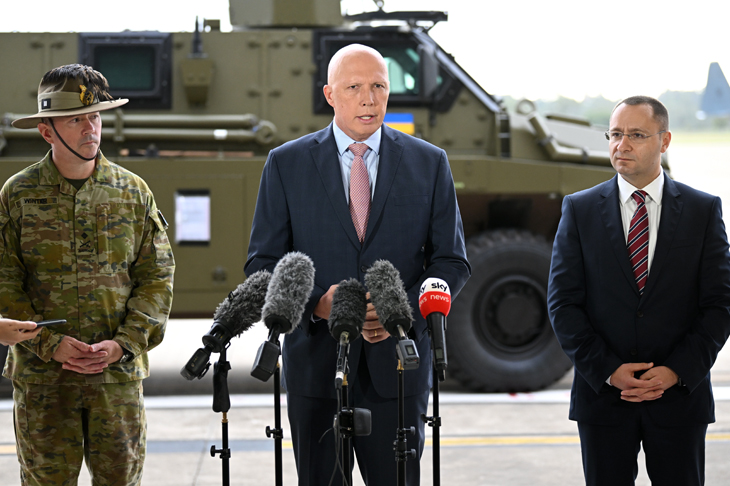
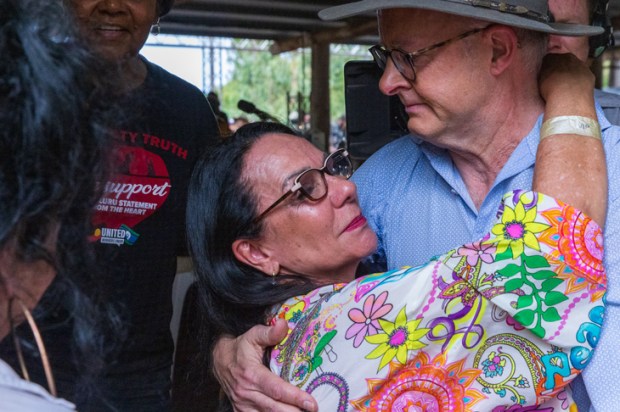
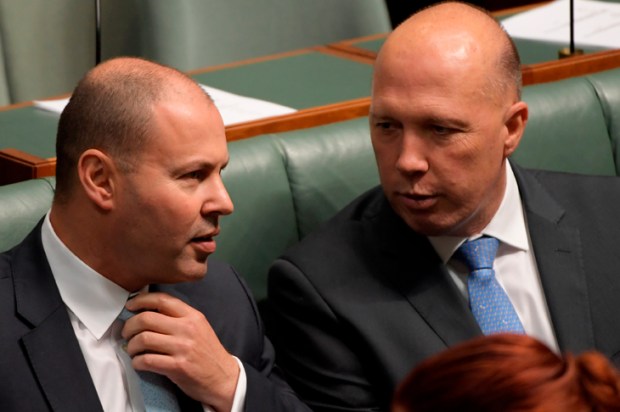
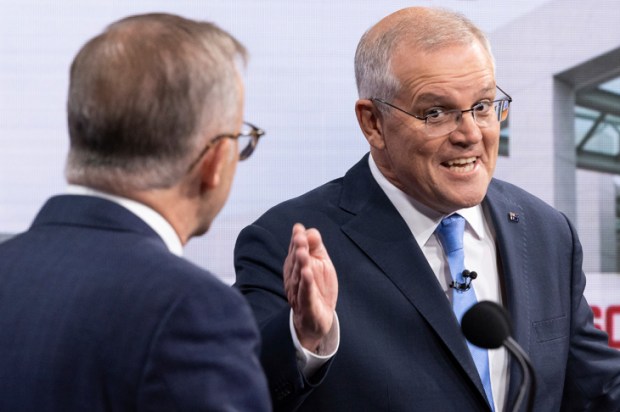

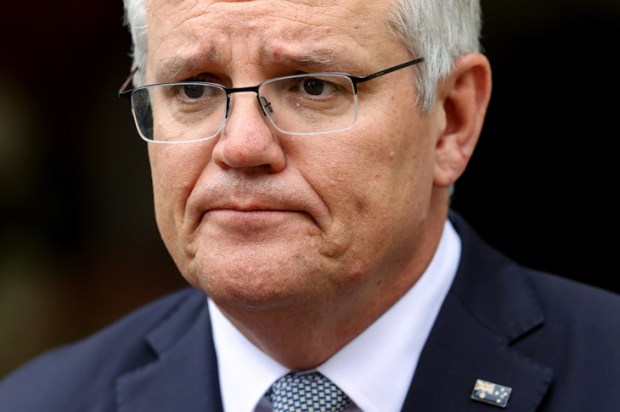
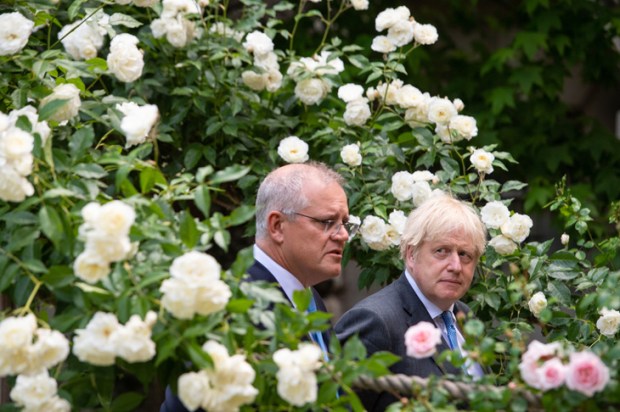






Comments
Don't miss out
Join the conversation with other Spectator Australia readers. Subscribe to leave a comment.
SUBSCRIBEAlready a subscriber? Log in